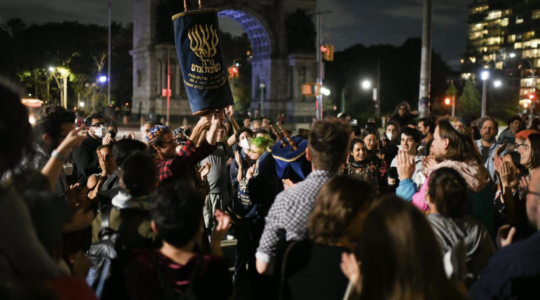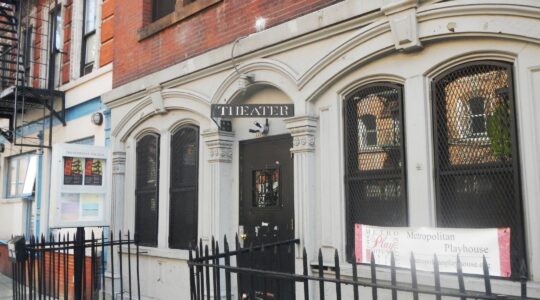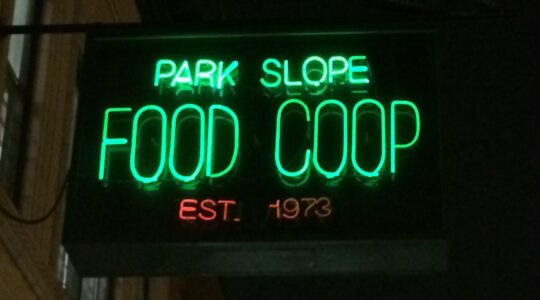The Rev. Al Sharpton’s $30 million defamation suit against the Republican party could bring the most intense scrutiny yet of the black activist’s role in two deadly anti-Semitic incidents, at a time when Sharpton is seeking a more mainstream image.
"They are inadvertently giving me an opportunity to clear my name," said Sharpton, who filed suit in Federal District Court in Washington last week against the Republican National Committee and its chairman, Jim Nicholson over a March 11 letter to the Washington Post.
In the letter Nicholson said Sharpton "set off four days of rock- and bottle-throwing attacks on Jewish homes" that culminated in the stabbing death of Yankel Rosenbaum. Nicholson also accused Sharpton of inciting the 1995 massacre at Freddy’s Fashion Mart in Harlem, quoting him as vowing to "make this cracker suffer," a statement Sharpton denies.
"They should be made to account for their words," said Sharpton, who recently lost a defamation suit brought by an upstate prosecutor whom he accused of raping Tawana Brawley more than a decade ago. "I’m going to give them the opportunity to prove that I incited the death of Yankel Rosenbaum and incited the fire at Freddy’s, and if not to prove him as a fraud who would use the exacerbation of black Jewish tensions to win votes."
While Nicholson is the defendant, the suit could have the effect of putting Sharpton on trial, forcing the perennial political candidate and Democratic powerbroker (who was courted by the Democratic presidential hopefuls) to defend his role in the two incidents.
He insists he did not enter Crown Heights until the second day of the riots, after Rosenbaum had already been stabbed. While that may be easy to prove, he may have a tougher time defending his role in the protests against Freddy’s, whose Jewish owner was engaged in a dispute with a neighboring black tenant. Sharpton was caught on tape, railing against a "white interloper" in the neighborhood shortly before a gunman shot four people and torched the store, killing seven. Police said the gunman, Roland Smith, had attended the protests.
"Week after week, under Sharpton’s National Action Network auspices and in his presence, the hatred that led to the massacre (specifically targeting Freddy’s) was incited," says Beth Gilinsky of the Jewish Action Alliance, an avid Sharpton tracker.
But Sharpton claims the gunman had been "a critic of mine" who had denounced him for preaching non-violence. "I went to talk to the owner and ask if I could mediate [the dispute]. It was clearly not me inciting people to burn the store down," he says.
In a statement, Nicholson said he ìwelcomed the opportunity to better inform the American people about Al Sharpton’s record."
Harvard Law professor Alan Dershowitz said the case, should it go to trial, will turn on whether Nicholson showed "reckless disregard" for the truth.
"It’s hard for a public figure to win these kinds of defamation suits," said Dershowitz. "They have to show malice." Even if Sharpton was not in Crown Heights when Rosenbaum died, "they could argue that over a broader period of time he created an atmosphere of incitement."
Speaking more as a Jew than as a lawyer, Dershowitz said it would be hard for the community to take sides in the trial. "It’s one of those cases of a plague on both your houses," he said. "Nobody has many good things to say about Sharpton in Crown Heights. On the other hand, nobody should have anything good to say about the way the RNC is trying to exploit this for their own benefit."
Support the New York Jewish Week
Our nonprofit newsroom depends on readers like you. Make a donation now to support independent Jewish journalism in New York.
There has been a flurry of activity on bias crime, among perpetrators as well as proponents of a state bill to more severely punish them. Last week vandals painted a swastika and "kill the Jews" on a Riverdale apartment building. A hate group has posted recruitment stickers in northern Queens. And a spate of church statue desecrations continues in Brooklyn.
Democratic Senate candidate Hillary Rodham Clinton joined state legislators in calling for passage of the long-delayed bill Monday. Senate Democrats failed to win a vote on the bill although Majority leader Joseph Bruno said the bill would be addressed in this session. The first lady rapped her opponent, Mayor Rudolph Giuliani, for not doing enough to lobby fellow Republicans to pass the bill.
Giuliani, meanwhile, has won praise from Jewish groups for expanding the NYPD’s Bias Crime Unit to a task force. "We applaud any act by public officials which can make it more costly to commit acts of hate," said Diane Steinman of the American Jewish Committee.
Westchester County Executive Andrew Spano last week convened his own task force on bias crimes, pointing out that New York is now only one of two states on the East Coast without a hate crimes law. "The other is South Carolina, which flies a Confederate flag over its capitol," said Spano, a Democrat.
In the wake of the acquittal of a prominent chasidic rabbi on witness tampering charges, Brooklyn District Attorney Charles J. Hynes is facing a major image problem in the Orthodox community, and some activists are looking to give him his first serious challenge next year.
"He’s become the Ken Starr of Brooklyn," says Albert Friedman, publisher of the chasidic daily News Report, whose editorial page has called on Hynes to resign. Friedman said the rabbi, Bernard Freilich, had passed a lie detector test suggesting his innocence before his trial. "The Freilich prosecution, or persecution, is one example of how he’s out of control. His top staff were blinded to the truth."
Hynes spokesman Kevin Davitt said he "would not dignify that with a comment."
Hynes’s failure to win an indictment against the six cops who shot Gidone Busch is also causing him grief in the Orthodox community, and he has made enemies at City Hall with his investigation into the Giuliani administration’s ties to chasidic builders in Williamsburg. A source said former deputy mayor Randy Mastro was among those approached to challenge Hynes, a Democrat. Mastro did not return calls.
The new commissioner of the city’s Department of Consumer Affairs, Jane Hoffman, says she’ll keep up the pressure on the Texas corporation that has taken over half the Jewish funeral homes here.
Former commissioner Jules Polonetsky had imposed regulations that require parlors controlled by Service Corporation International to disclose their ownership and publish price guidelines.
"We’re continuing the enforcement efforts that Jules put into place," says Hoffman. "He did a wonderful job in his analysis of the industry and we plan to continue his efforts."
A judge upheld the department’s right to impose the rules, but a funeral home operators group has appealed the decision.
Support the New York Jewish Week
Our nonprofit newsroom depends on readers like you. Make a donation now to support independent Jewish journalism in New York.
Line Items
A new name has surfaced in the race to succeed Noach Dear, a Democrat, in the City Council. His wife, Rikkli Dear, is said to be mulling a run for the Borough Park seat in 2001.
In other spousal news, Riverdale’s Lorraine Koppell, the wife of former Attorney General Oliver Koppell, is said to have shifted her sights from the City Council to the state Senate. She is mulling a challenge to Republican Sen. Guy Velella in November.
Borough Park Assemblyman Dov Hikind is continuing to press the case against the police shooting of Busch last August. On Thursday, he was to host the mother and brother of the victim at his United New York Democratic club.




